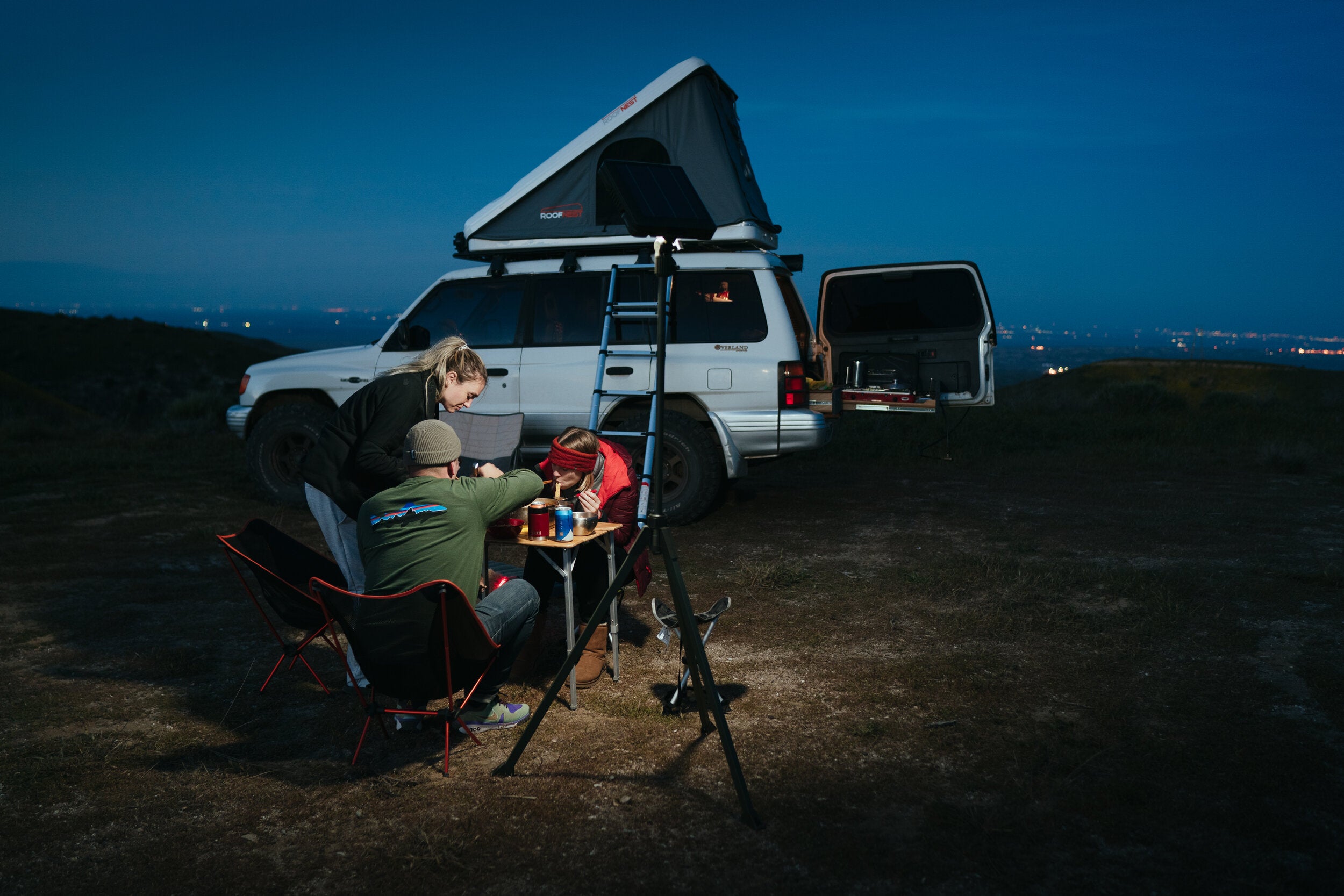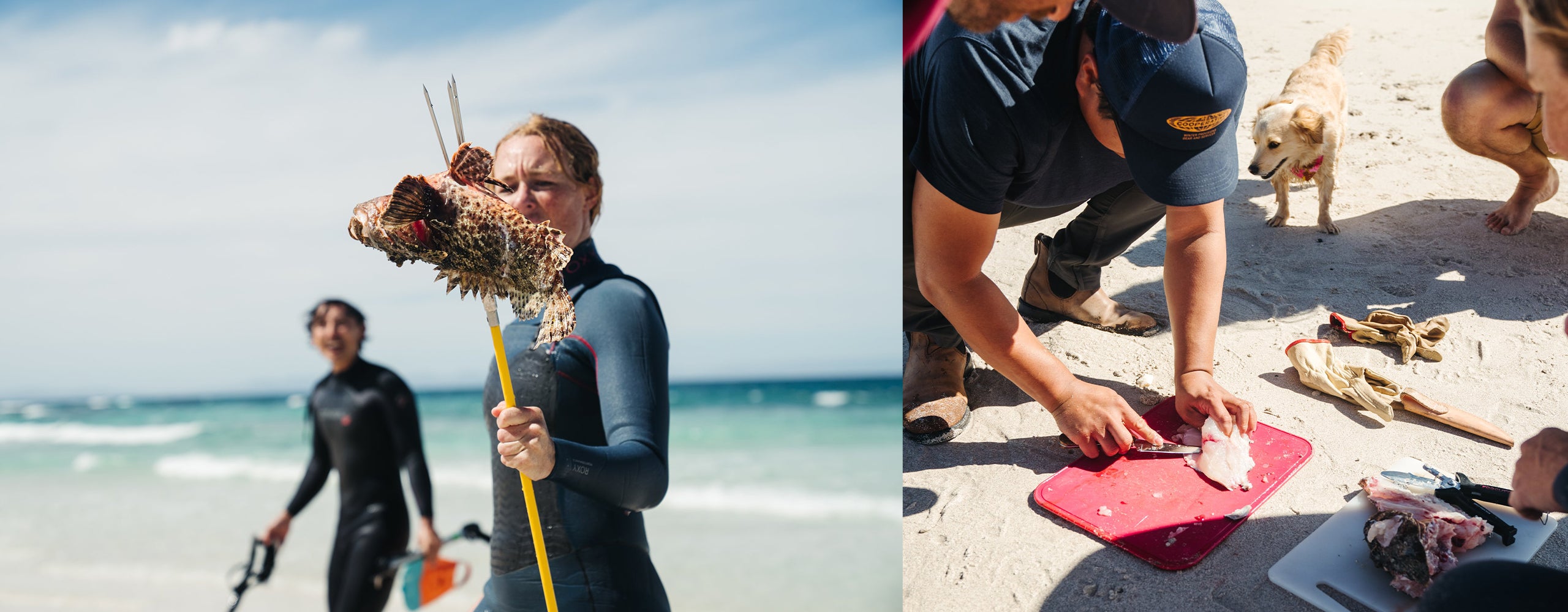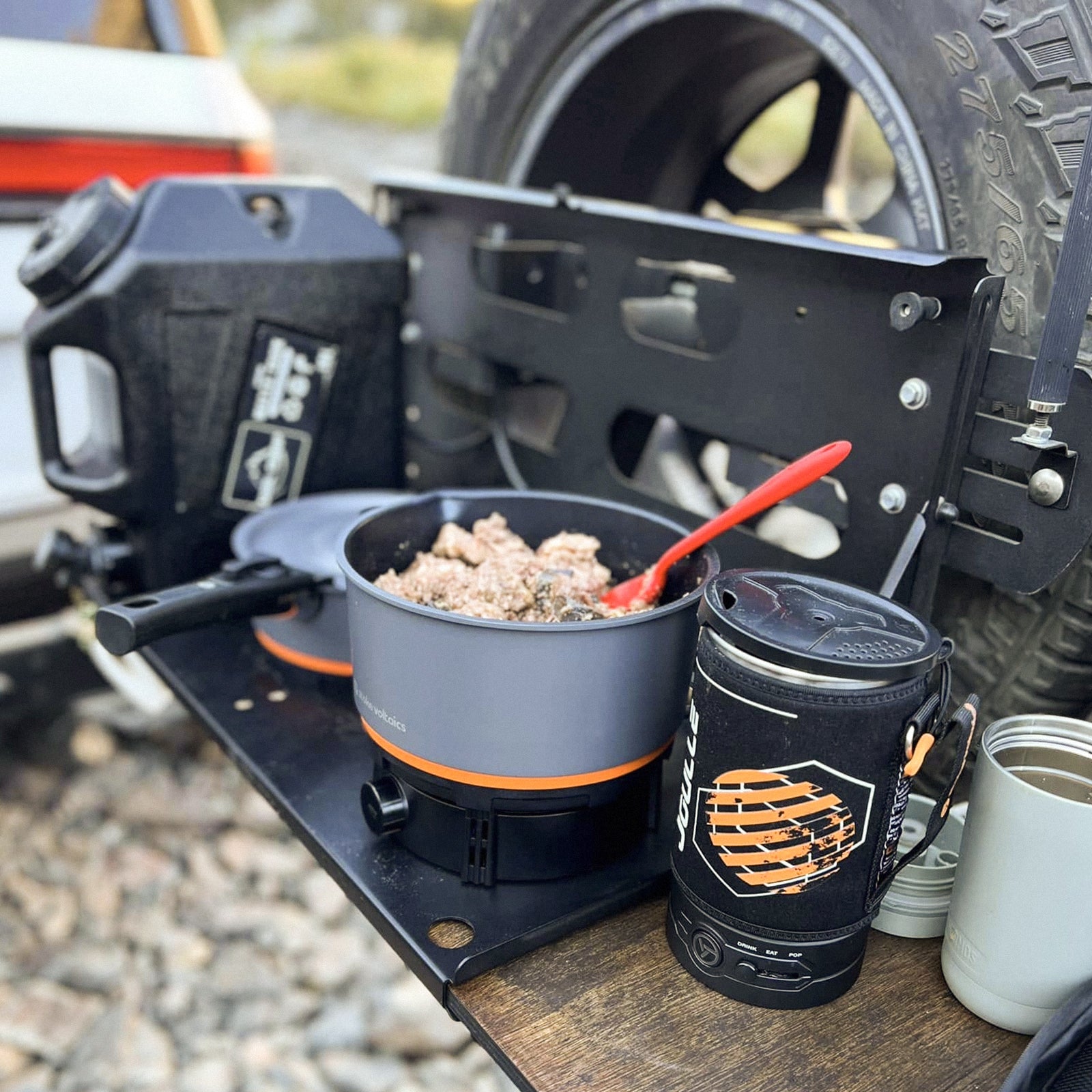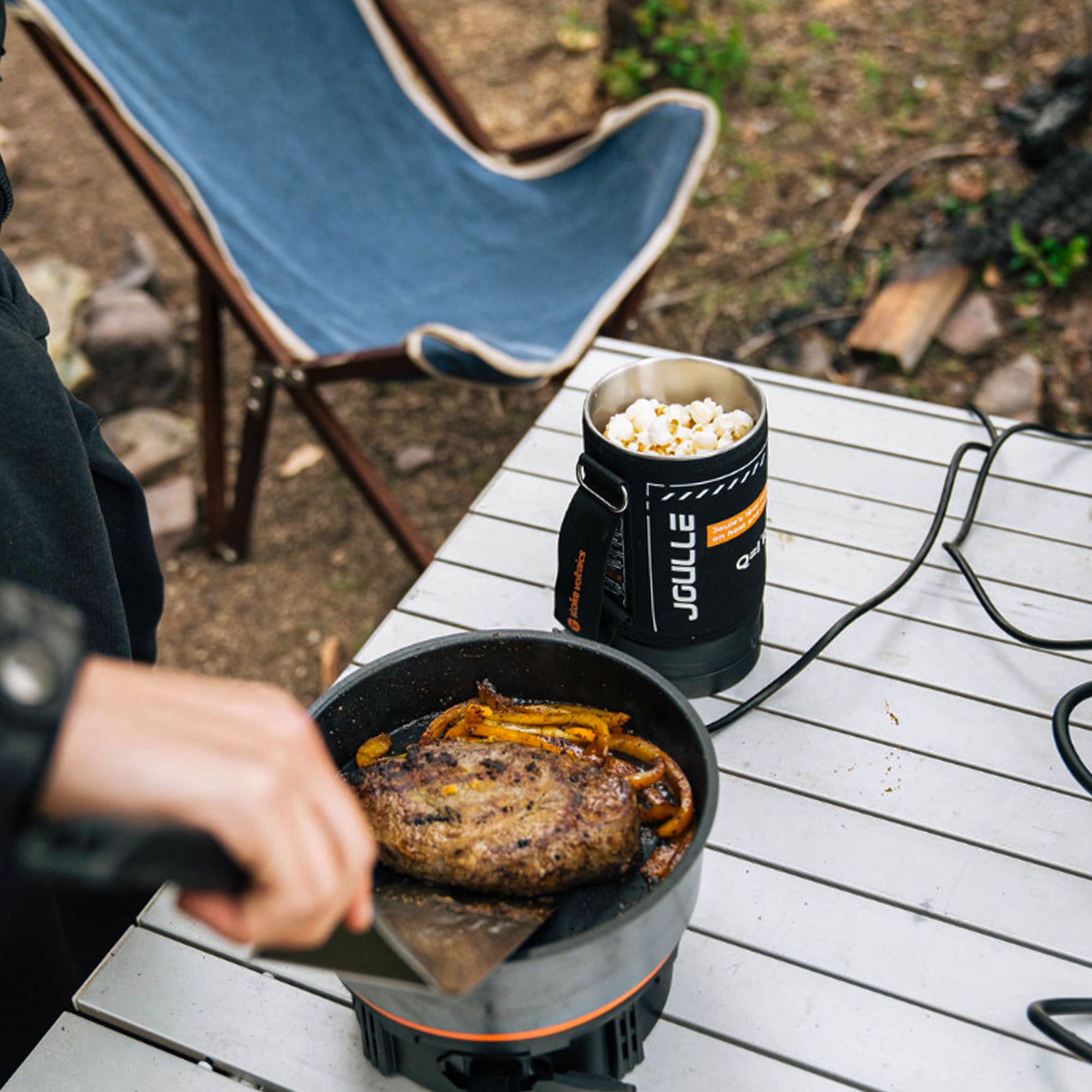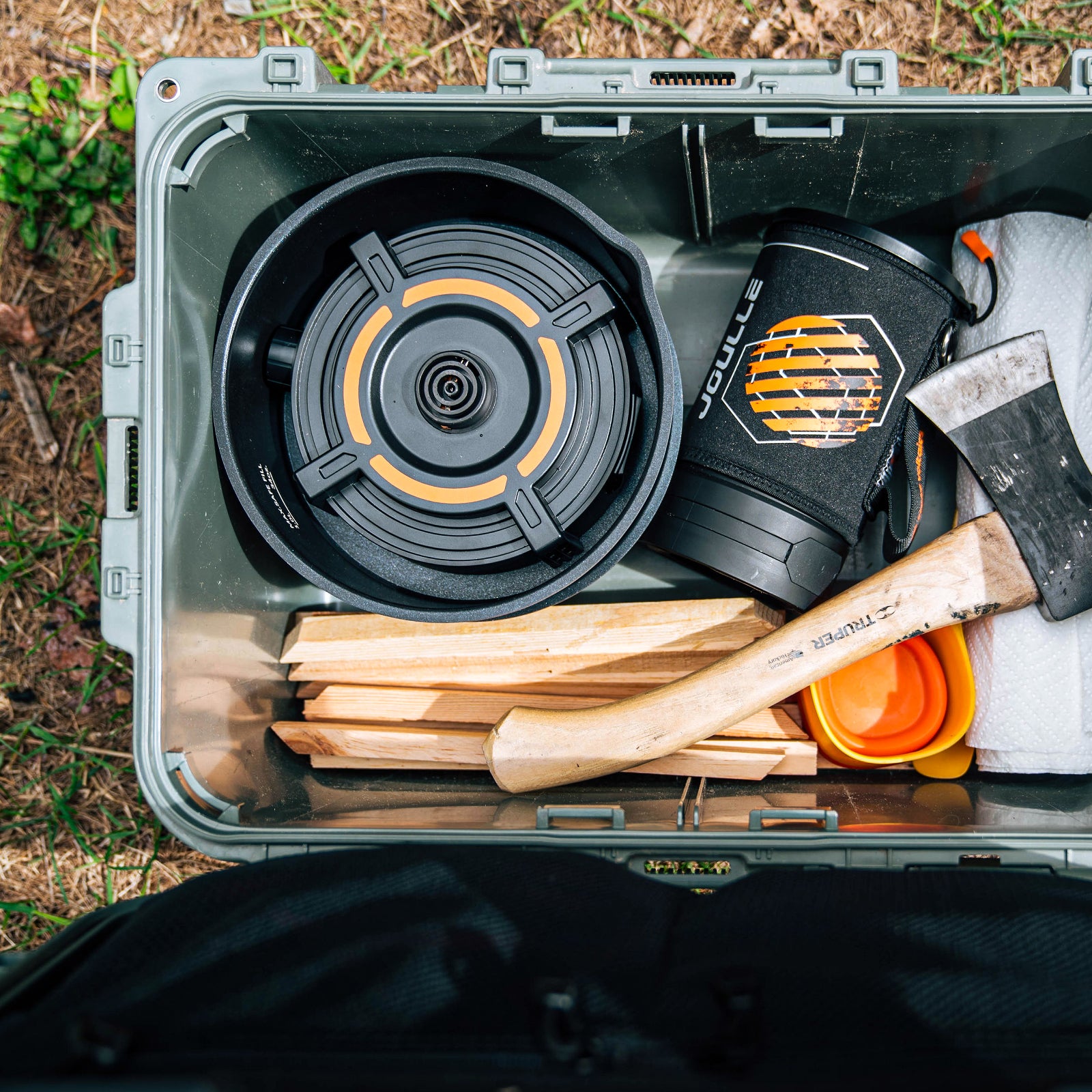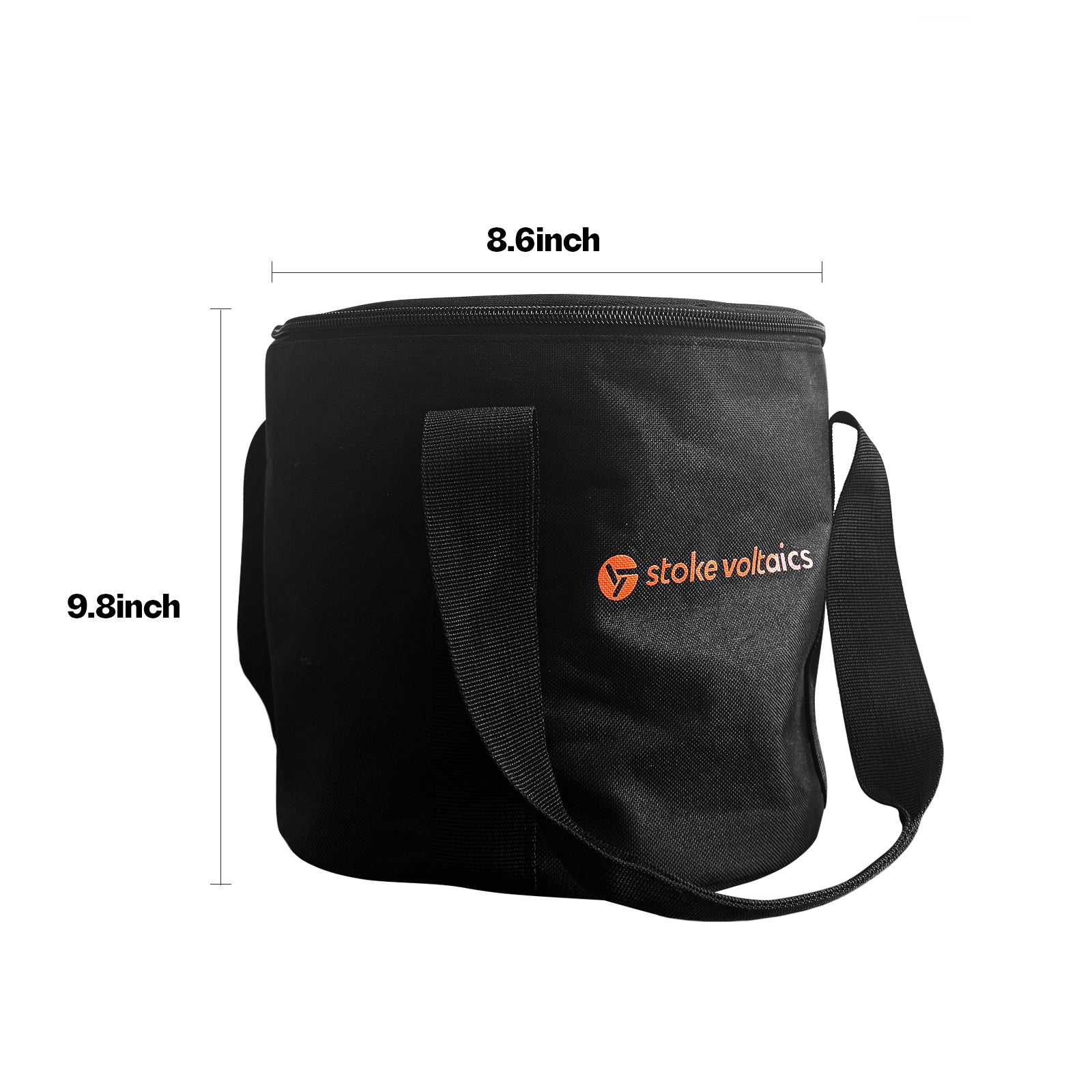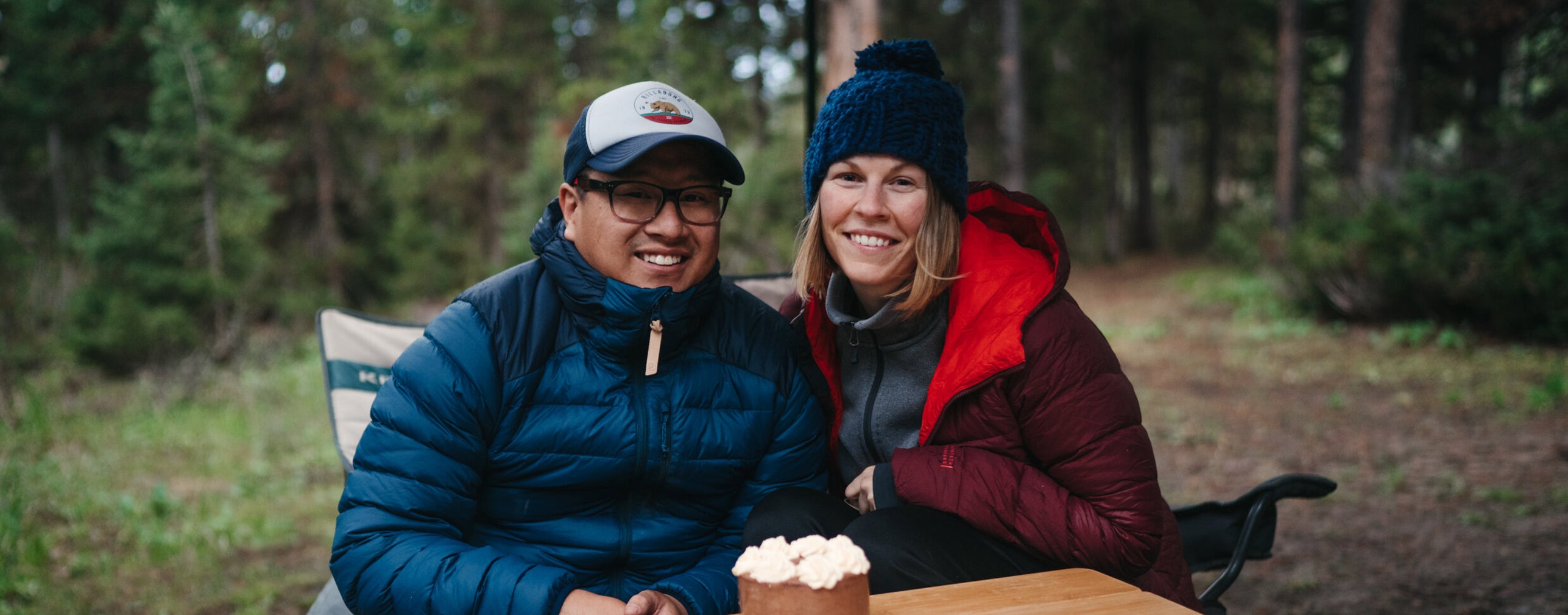Story By: Gon Dirtin | Time: 2024.12.12
When we think of outdoor cooking, what comes to mind? Hot dogs sizzling over a fire, a cast-iron pan of bacon and eggs, or maybe canned chili warmed over a gas stove. These images dominate our perception of camp cuisine. But Linhbergh and Karissa of Gon Dirtin (@gondirtin) are flipping that script, carving out a new narrative for what it means to eat in the wild.
"Everything we eat is steeped in history."
Linhbergh sees food as much more than a sensory experience. For him, every bite carries a story - a symbol of cultural heritage, migration, and adaptation. He often wonders, “Who was the first person to scrape bark off a tree to make cinnamon?”
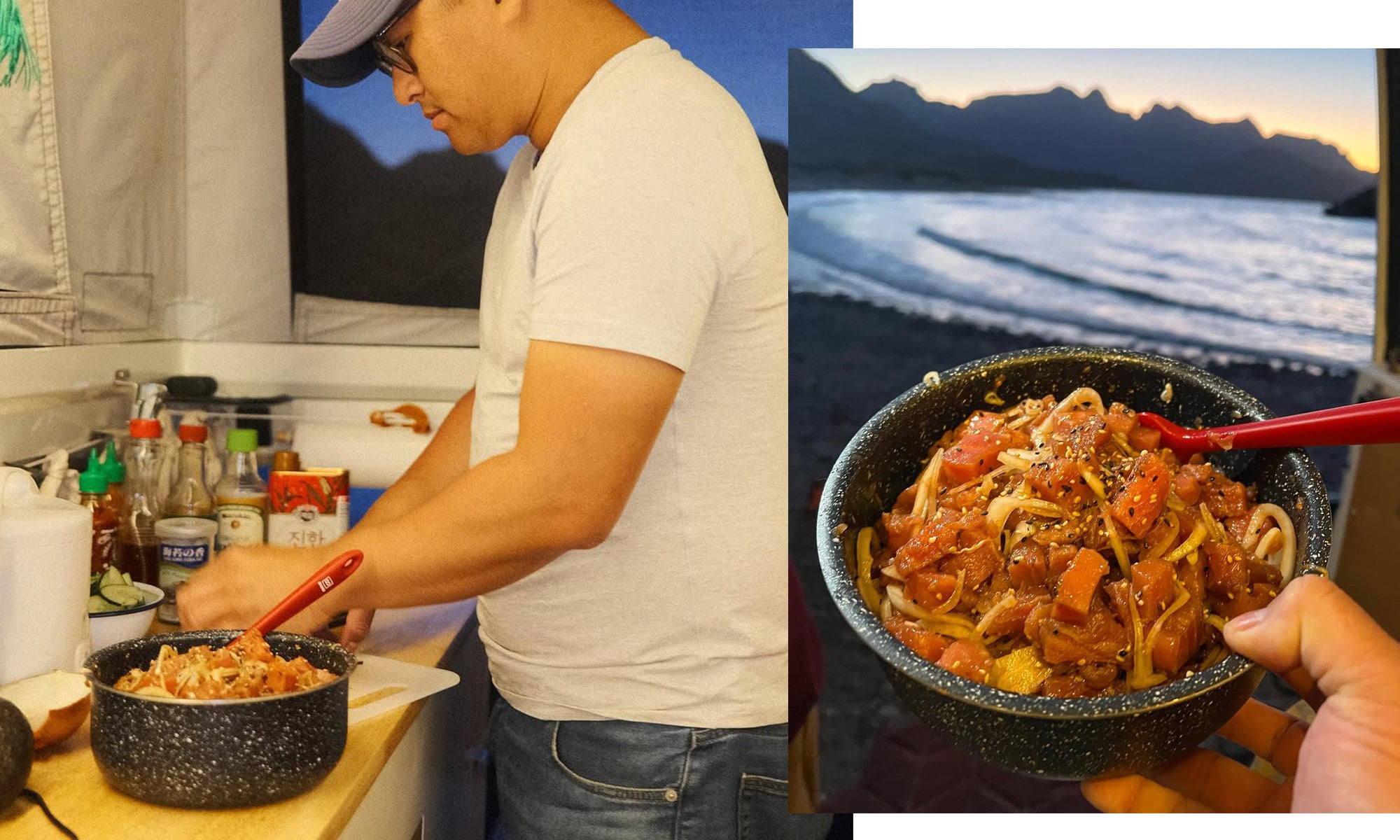
Linhbergh's passion for food history extends from his fascination with history in general. He possesses an enduring curiosity to uncover the narrative behind various culinary delights, pondering the question: "Why does this dish exist?"
This quest has led him to explore and learn from diverse cuisines, ranging from Hong Kong to Vietnam, contemplating ingredients and techniques such as MSG and sushi.
Each dish we encounter carries a story that transcends borders and time, reflecting the diverse and complex histories of human migration, trade, and cultural exchange. With each bite, we savor the flavors and the rich tapestry of experiences that shape our understanding of food and its evolution.
"Knowing food's history really expands your appreciation for food, right?"
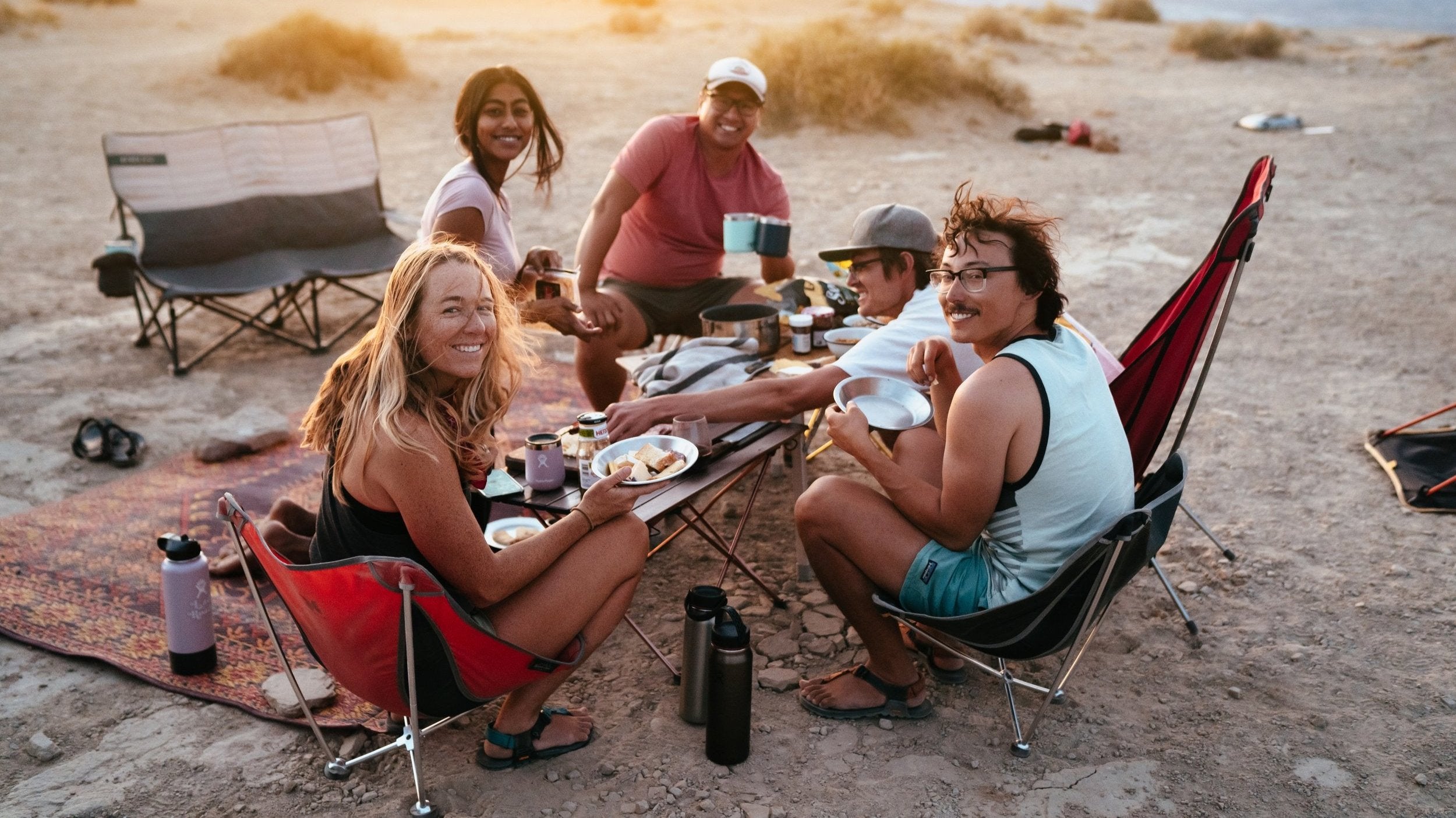
“We wanted to cook food that reflects us, not just what everyone expects.”
Most of us equate outdoor cooking with simplicity: burgers, steaks, maybe a canned stew. Social media amplifies this narrative, showcasing glossy images of these familiar meals against backdrops of mountains or beaches. Linhbergh and Karissa, however, see camp cooking as a blank canvas for culinary creativity.
This meant rethinking what was possible: not just warming up pre-packaged meals but crafting dishes that surprise and delight. In their outdoor kitchen, this philosophy shines. Their dishes go beyond satisfying hunger; they’re a celebration of identity and resilience. From delicate Dalat style Vietnamese Pork Meatballs to Easy Camp Korean Army Stew, their outdoor kitchen is a testament to the power of intentionality and imagination.
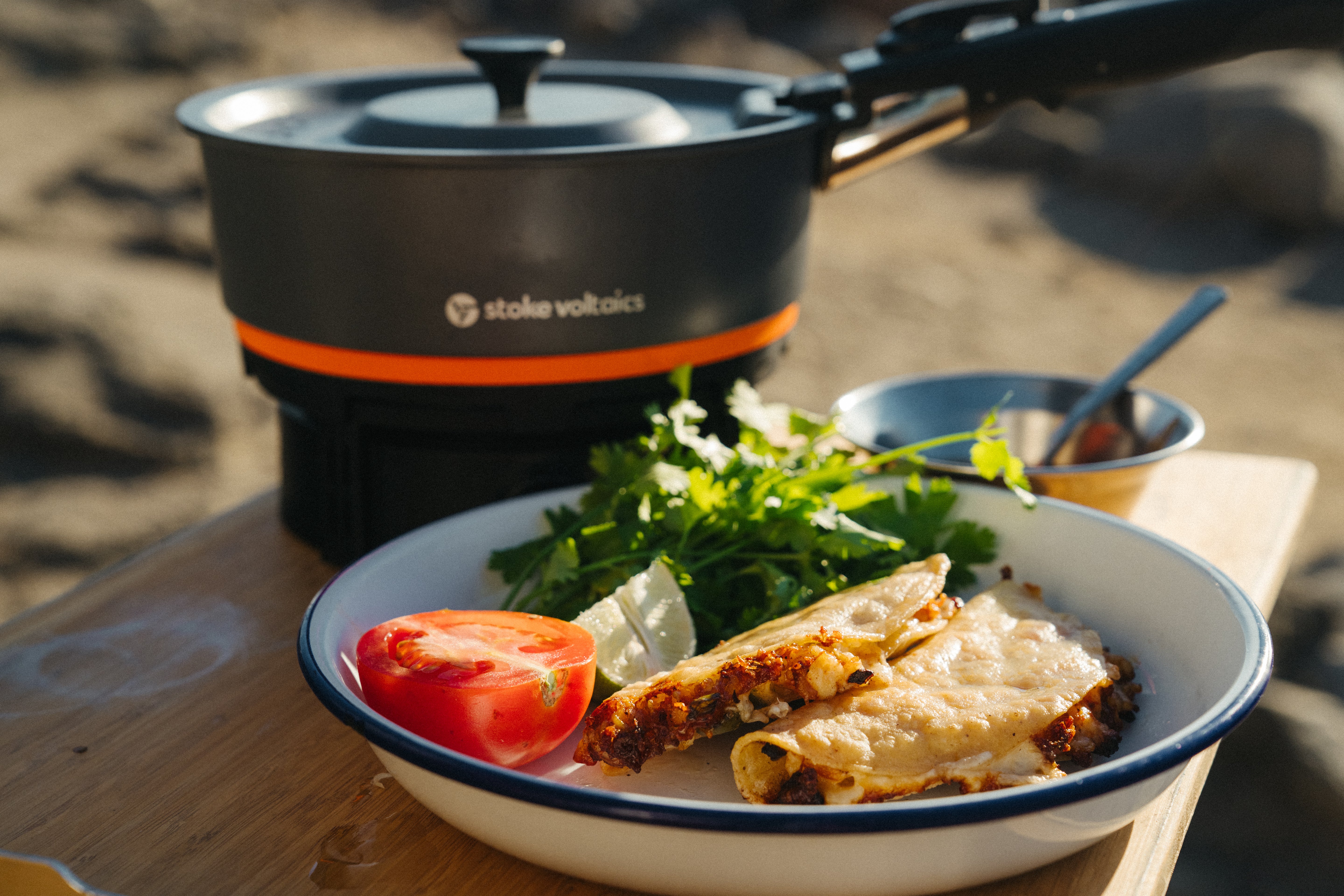
Chessey Shrimp Tacos made with the Nomad Cooking System
"Home is where good food is."
For a third to half of the year, Linhbergh and Karissa live in their vehicle, chasing sunrises and sunsets, meeting strangers-turned-friends, and immersing themselves in diverse landscapes.
“The further we went out, the further we got from really good food,” Linhbergh reflects. Small-town diners and camp staples couldn’t replace the bold, layered flavors they loved.
As they continued their journey, the constant change of scenery and flavors began to highlight the importance of the food that reminded them of home.
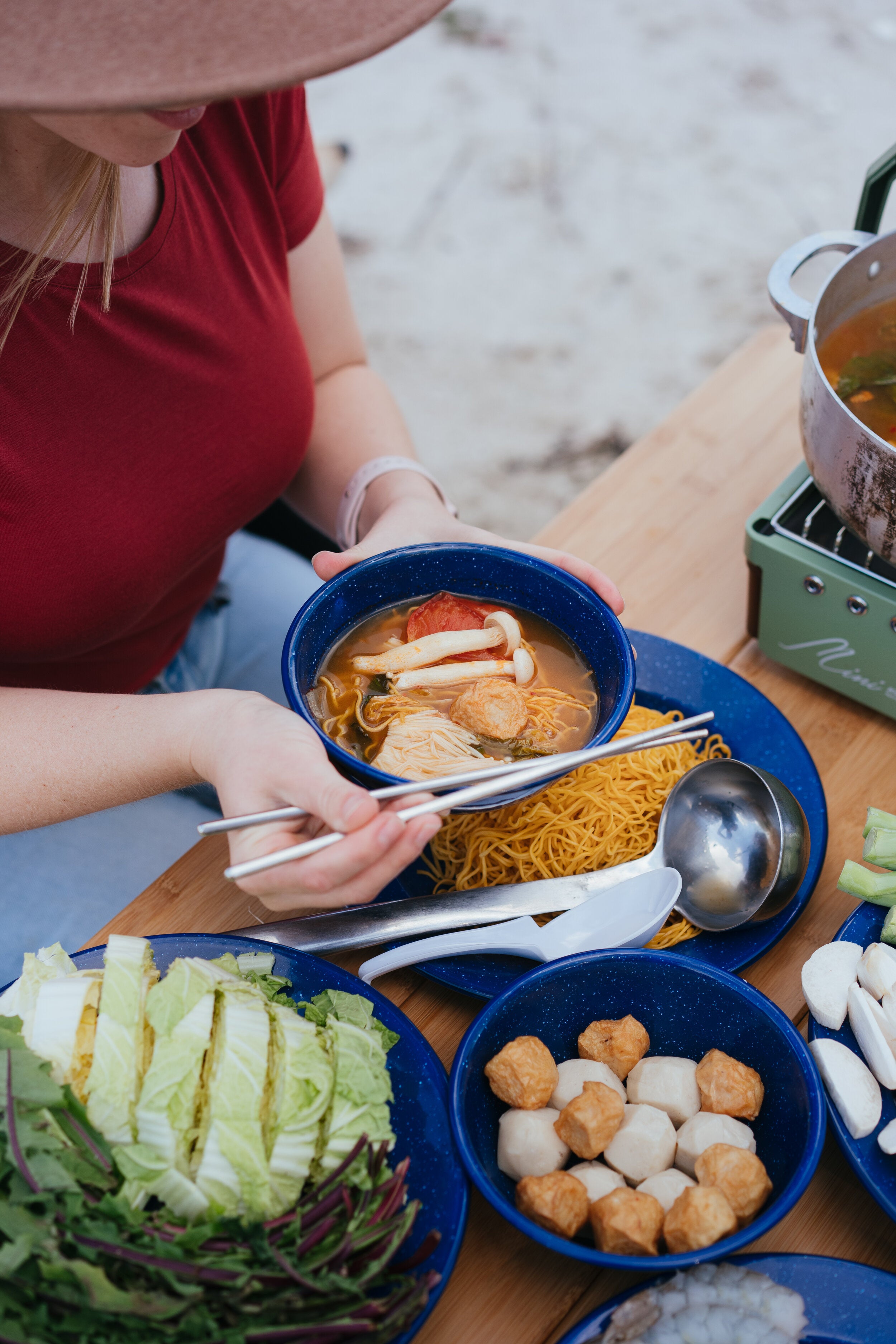

"Hot pot is the answer. "
“It’s not just a meal,” Linhbergh explains. “It’s a way to bring people together, to create a sense of home, even in the middle of nowhere.”
Introducing the inspired reimagination of the beloved hot pot as an outdoor recipe. Rich in flavors and nutrients, this inventive dish perfectly complements the outdoor experience. With its unparalleled suitability for the great outdoors, the Nomad Cooking System is poised to become the go-to choice for creating an unforgettable hot pot experience under the open sky.
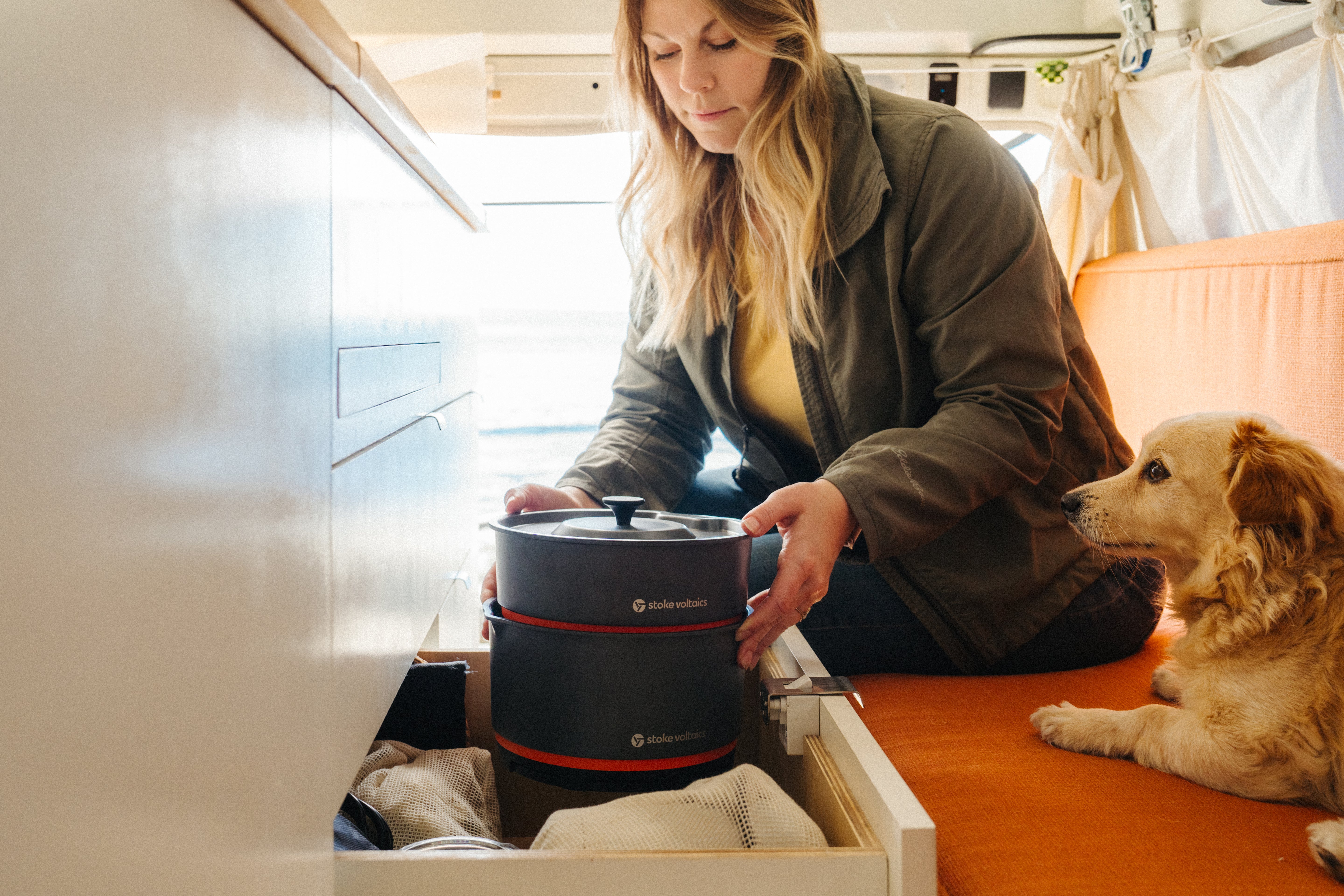
"I love the physicality of a gas stove, but..."
Their journey toward electric cooking was shaped by their commitment to sustainable, long-term travel. Spending nearly half the year in their rig, they aim to minimize their impact on the earth while staying self-sufficient in small spaces.
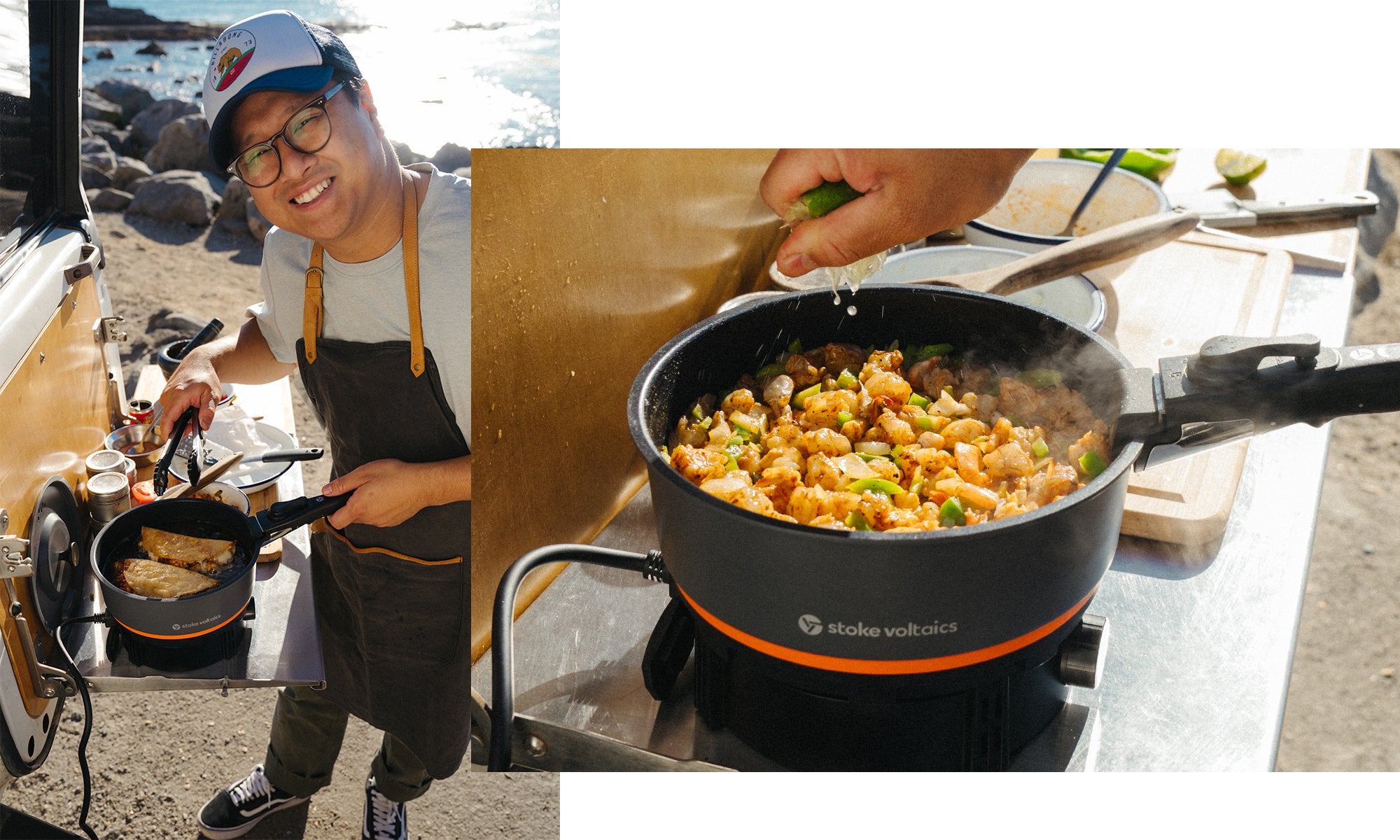
Cooking in the summer heat without air conditioning led them to explore alternatives: Nomad Cooking System. What they discovered wasn’t just a solution to their heat woes - it was a revelation. Electric cooking offered precision, efficiency, and sustainability. Generating their own electricity already eliminates reliance on external power sources, and switching to electric cooking means reducing the need for propane, gas, or butane.
“It’s one less thing to restock in town,” Linhbergh explains, emphasizing how this change allows them to stay off-grid longer while leaving critical resources in small communities untouched.
Gon Dirtin's Favourite Cooking System
Kettle Pot & Nomad Cooking System Bundle


